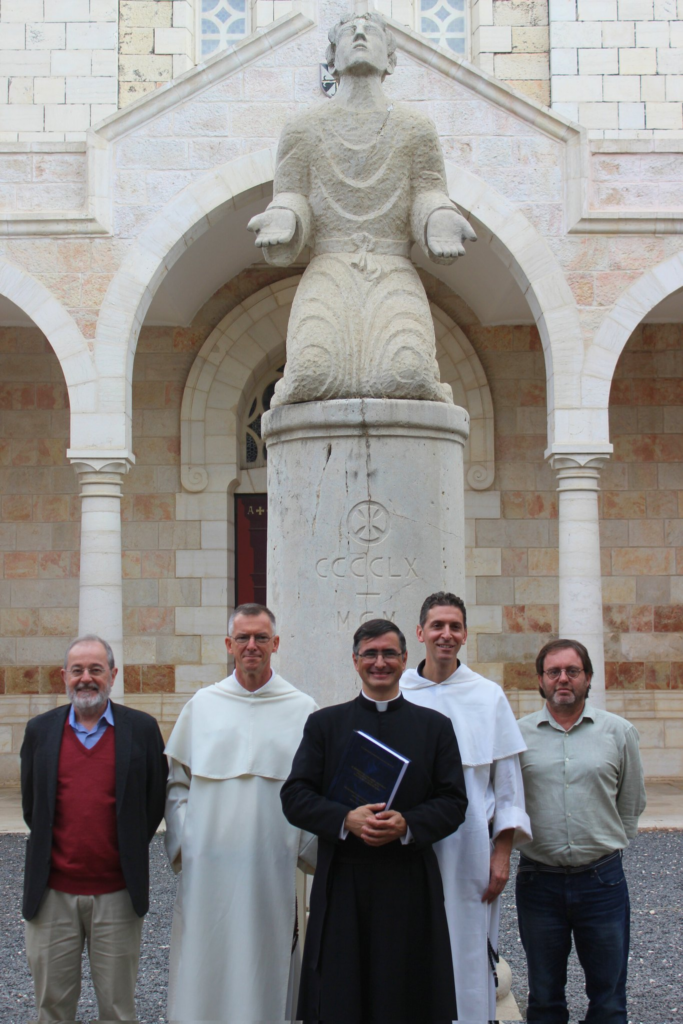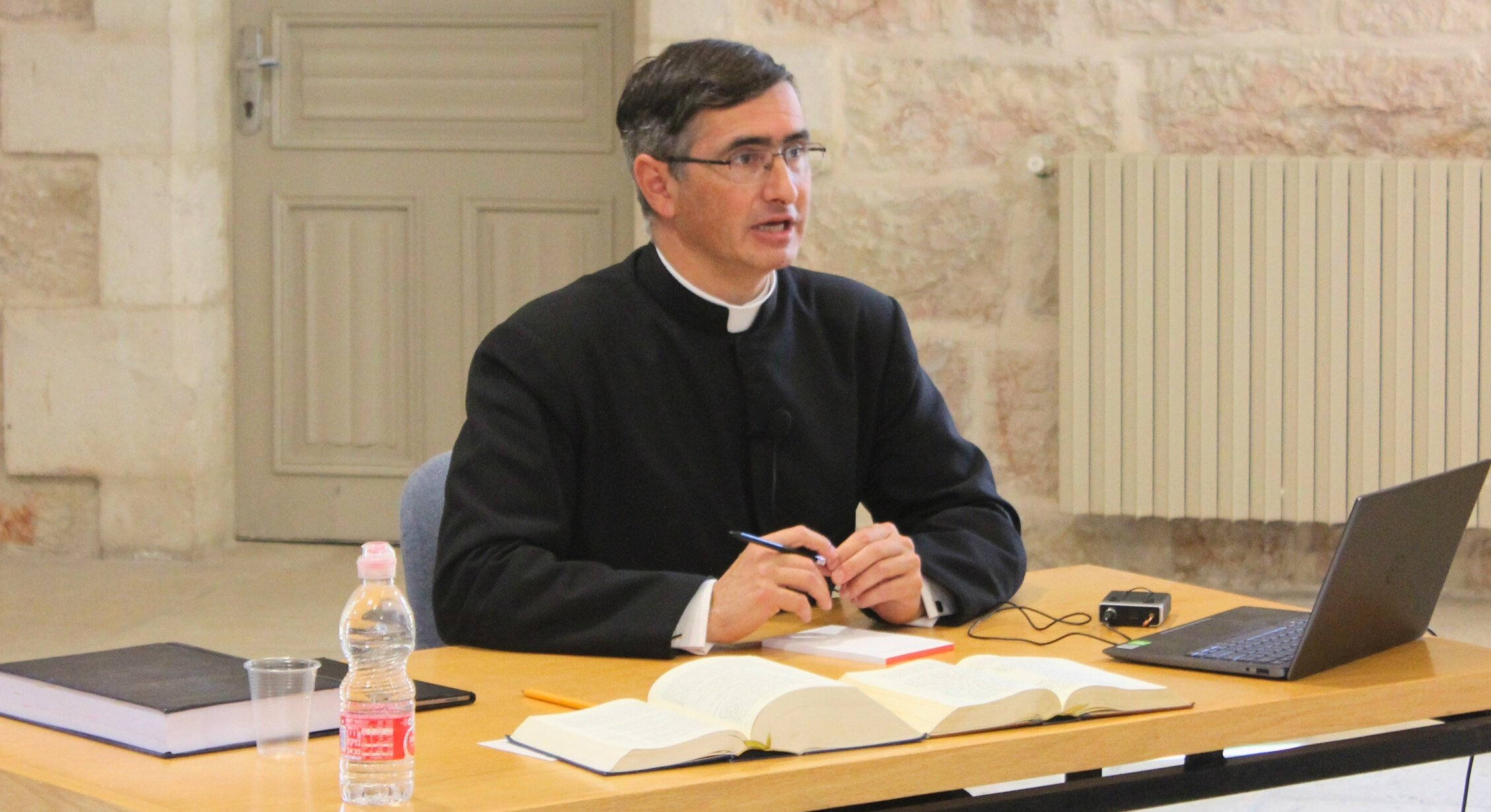Father Cristóbal VILARROIG MARTÍN, L.C., defended his doctoral thesis at the ÉBAF after years of research. His presentation convinced the members of the jury, who awarded him the insigne cum laude distinction. Congratulations!
 Photo: ÉBAF, Ordo Prædicatorum.
Photo: ÉBAF, Ordo Prædicatorum.
Members of the jury with F. Cristóbal.
He talks about his thesis and why he chose the ÉBAF as his place of work.
“I have just defended the doctoral dissertation about the Benedictus: a study of Zechariah’s prayer in the light of the Jewish prayer known as the Amidah or Eighteen Blessings.
This project started in the summer of 2017, when I came to Jerusalem in order to work in an article and prepare some material for a course about the Synoptic Gospels. At the time, I was a non-stable professor at the Pontifical Athenaeum Regina Apostolorum in Rome, still looking for a subject for my doctorate. Visiting Jerusalem, I had the opportunity of knowing the École biblique et archéologique française and its magnificent library, and I conceived the idea of concretizing my projects for the doctorate. During the following school year, a friend told me that Fr. Anthony Giambrone, O.P., from the ÉBAF, was coming to Rome to hold a conference, and I had the opportunity of knowing him and a dialogue began that concluded when I came back to Jerusalem in October 2018 to start the doctoral program.
The preceding years, the idea of working of the Benedictus had been growing in my head. A prayer that forms part of our daily liturgy, contains some mysterious expressions that, to my view, had not satisfactory been solved. Moreover, I had been reading some literature around the subject, and I realized that several authors had offered a very suggestive indication: this prayer was quite similar to one of the blessings of the daily Amidah in Judaism; however, very few had deepen in this subject and not in an exhaustive way. During the following two years I could further determine the subject of the dissertation: in the first year, to be admitted to the doctoral program, I wrote an article about the expression “horn of salvation” (cf. Luke 1:69), and the lesson public at the end of that year was almost a premonition of what would be my dissertation: that the Benedictus would be, in the Church, what in Judaism is the Amidah. “The Benedictus -I concluded- would be the evolution of the Amidah, that Christians never stopped praying”. After my lecture, Dr. Christophe Rico approached me, and encouraged me to deepen further in this subject.
After being accepted to the program, I began the doctoral seminars (2029-2020), and two of them were particularly helpful for preparing the project of my thesis. In the seminar guided by Fr. Michel Gourgues, O.P., we studied some of the oldest hymns of the New Testament; though the Benedictus was not in the program, the methodology offered was incredibly useful for my purpose. Another seminar, led by Fr. Paul -Marie Fidèle Chango, o.p., and Łukasz Popko, o.p., was an exploration of the biblical concept of creation. In the paper I presented for that seminar, I defended that the concept of resurrection that was widespread at the end of the Second Temple period, had been rooted in the idea of God’s omnipotence in 2 Mac 7 and in the second benediction of the Amidah. This paper obliged me to deal seriously with the Amidah, and this experience helped me to further determine the subject and the methodology of my research. This was the first year of the pandemic; on the one hand, it was challenging not being able to use the library during several months, but on the other hand I had plenty of time to read and to reflect a lot. At the beginning of the second year of doctorate (November 2020) I could present the project for my thesis under the guidance of Fr. Anthony Giambrone, and it was accepted. “

